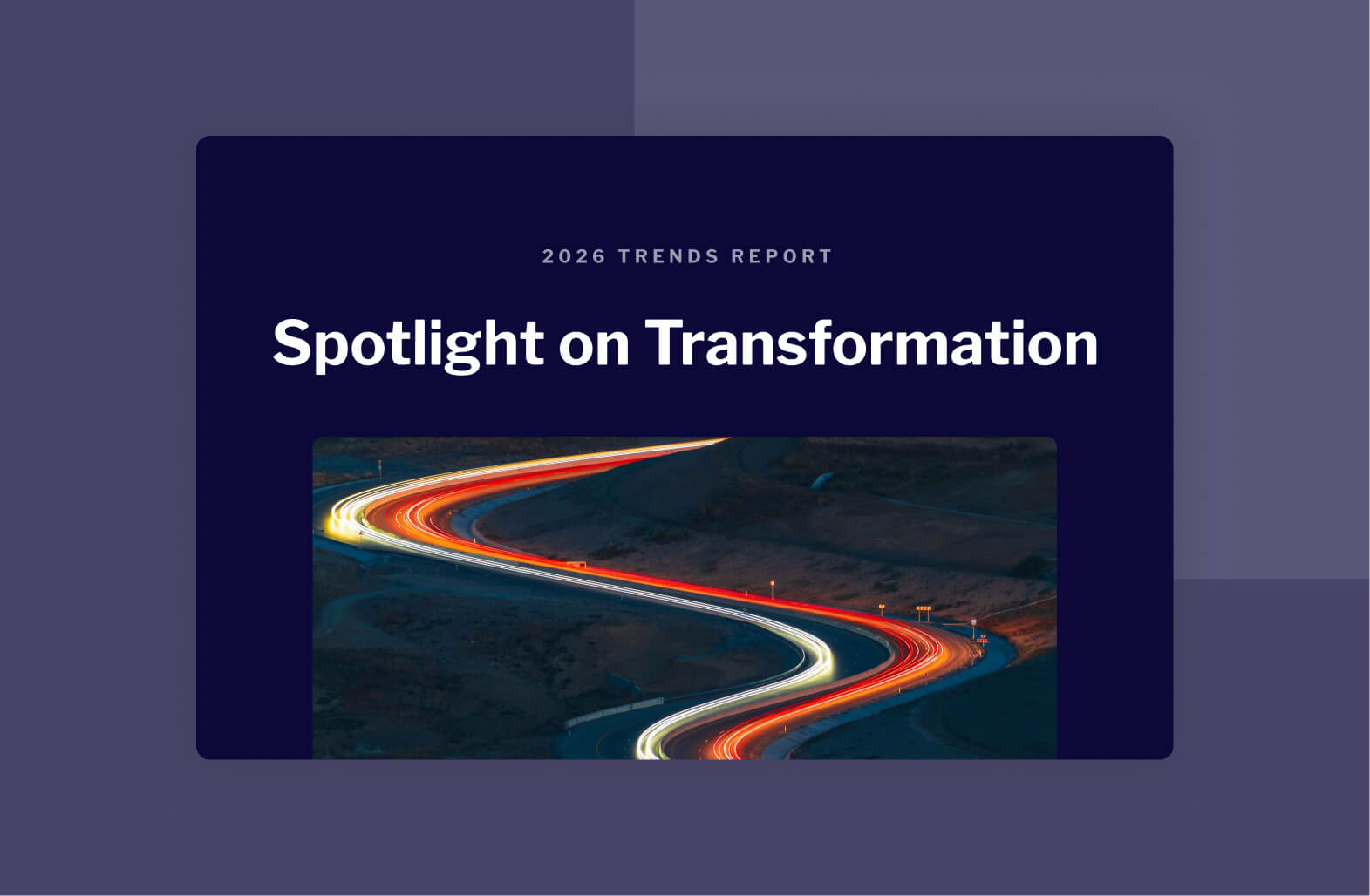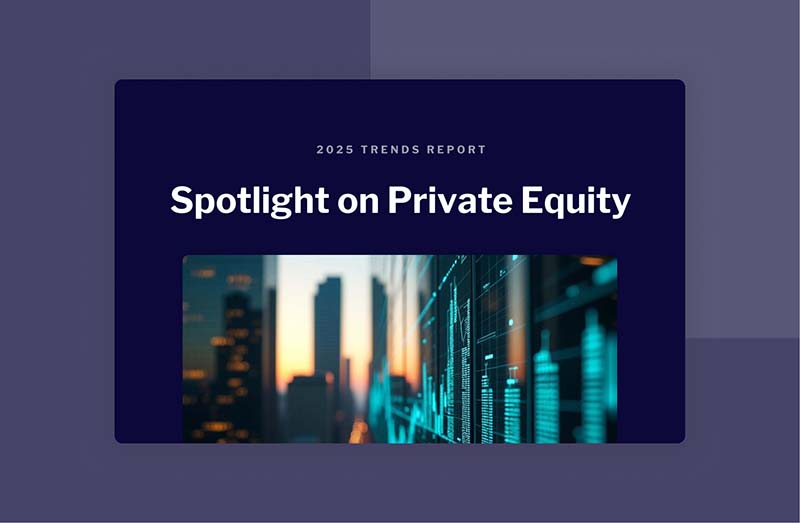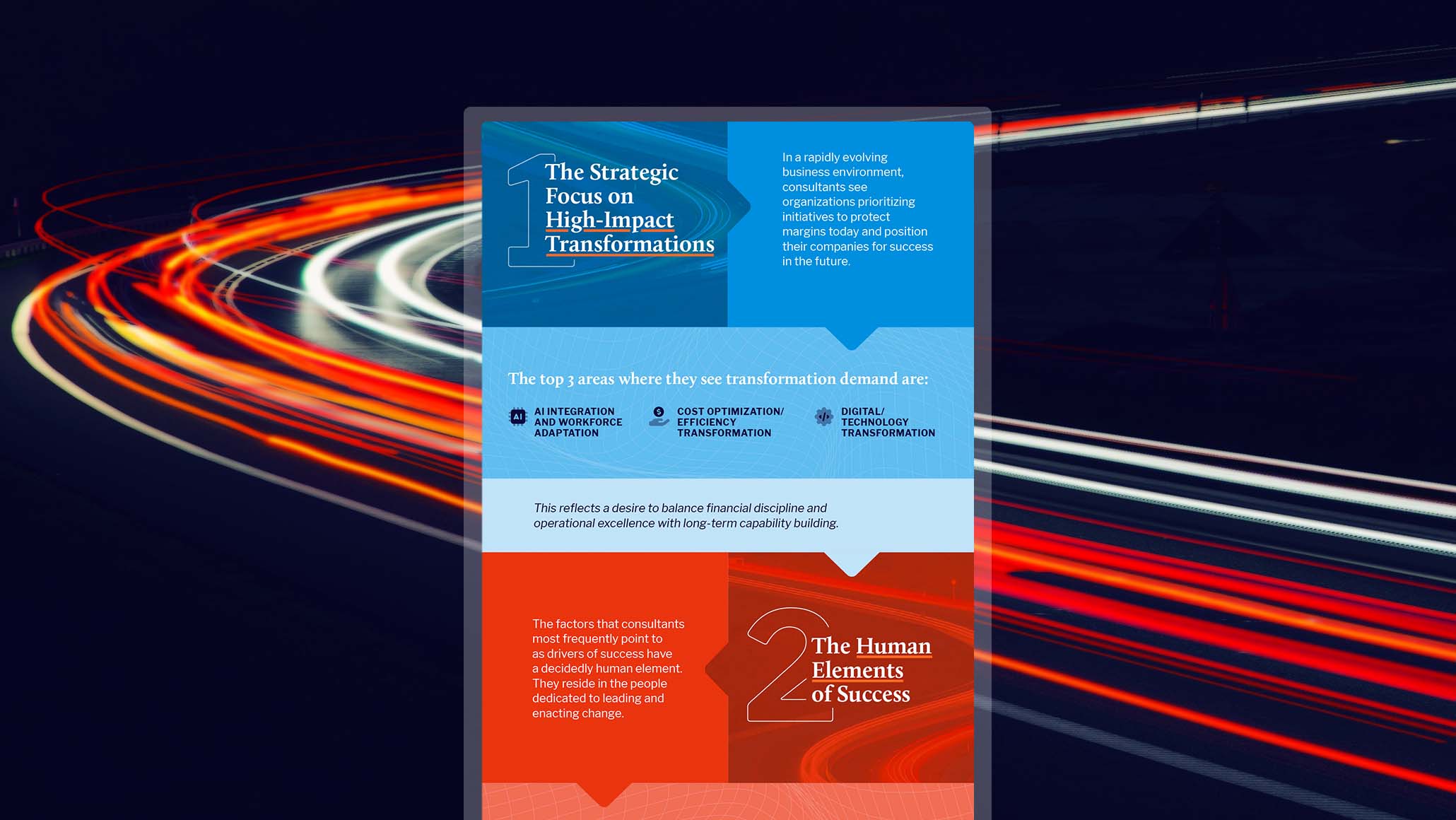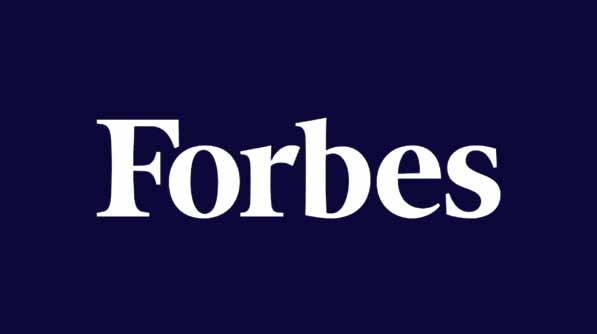How GenAI is Reshaping the Industry and Empowering Independent Consultants

The research underlying this piece was collected and analyzed in partnership with fellow Catalant Expert Tom Cooper, an AI practitioner and digital practice leader in the Catalant community.
There’s no doubt AI is disrupting the consulting industry. While AI is disruptive, it is also unlocking tremendous value for clients and consultants alike by allowing us to work smarter while machines handle rote tasks like research and administration. I can already picture a conversation with a junior analyst five years from now: “There was a time we spent entire weeks staring at spreadsheets.” I predict they will react the same way they do today if they see the road atlas I still keep in my car — with polite disbelief.
The transformative nature of this disruption reminds me of the first time I experienced the World Wide Web in the mid-1990s, when I was a young consultant. Information that had taken days to arrive by mail, like annual reports and product literature/safety data sheets, was suddenly available from my desktop computer. It was limited, sure, but it was a game-changer. Today, I believe we’re at a similar inflection point with AI.
Exactly how the full transformation will take shape remains to be seen. At the nascent end of the journey, I have been using AI daily for analysis, slide generation, and even sales and marketing. Curious how my independent consultant peers were integrating AI into their own work, I ran a survey and started conversations with other Experts in Catalant’s Practice Community. What I found was a community actively experimenting but still early in unlocking AI’s full potential. Many consultants are automating pieces of their workflows, but few are fully leveraging what AI has to offer to work faster, sell smarter, and serve clients better.
While innovations in AI and the adoption of new tools are both evolving rapidly, I believe the results offer a directional glimpse into the evolution of independent consulting in an AI-first world.
How independent consultants are using AI today
Every respondent to my AI survey reported using AI daily, with ChatGPT as the universal anchor tool. Yet, consultants reported layering in the use of more than 25 different genAI tools depending on the individual, the context, and the task, including both general-purpose and niche platforms. This shows a maturing, multi-tool approach aimed at maximizing efficiency across a variety of workflows.
Efficiency was a key word across my findings, as my peers reported using AI to accelerate every phase of the consulting process. Most commonly, they are using generative tools for research, sales, data analysis, and first drafts for proposals, slide decks, and emails, freeing up time to refine and add strategic insight. Other prominent uses of AI include parsing dense documentation, meeting capture and summaries, and even code generation.
What once took hours can now take minutes, enabling independent consultants to focus on problem-solving rather than the grunt work that is often performed by support staff at big consulting firms. Consultants are also using AI for rapid upskilling to reduce reliance on junior analysts and subject matter experts. AI is helping consultants do more, faster, and often better, while opening doors to take on more work or work that was previously out of reach due to a limited understanding of the niche.
The challenges of AI adoption
Despite the rapid move toward AI adoption and its clear benefits, its integration into consulting workflows is far from frictionless. One of the most pressing concerns others in the Catalant Practice Community raised was the quality and accuracy of AI-generated outputs. Four primary challenges emerged:
- Hallucinations — confident-sounding but incorrect or fabricated information — pose real risks in client-facing work. As a result, most remain cautious, enforcing validation workflows and emphasizing human oversight before anything reaches a client’s desk. AI may accelerate the first draft, but strategic judgment and factual precision still rest in our hands.
- Data security, especially when engagements involve proprietary research, client IP, or confidential internal documents. To address this, many of my peers are shifting to secure environments like ChatGPT Team or deploying local language models such as Ollama, which offer greater privacy control. Still, there is recognition that consistent, standardized governance frameworks are critical for secure, responsible AI use across the consulting lifecycle.
- Digital sprawl, caused by the sheer volume and variety of tools available. While experimentation is high among the consultants I surveyed, that type of sprawl can breed inefficiencies and leave us with a fragmented landscape of tools. This particular problem has informed my belief that we need more curated AI toolkits, best practice libraries, and enablement resources to help each other as a consulting community better navigate an overwhelming environment.
- Lastly, skills. Some consultants are clearly getting more from AI than others, largely because of developing expertise in prompt engineering. Super-users treat AI as a collaborator — refining prompts, iterating on outputs, and training custom GPTs on client-specific materials. As the technology evolves, closing this skills gap will be essential to help those using AI more passively turn it into a more valuable tool.
The future of AI for independent consultants
Looking ahead, AI is poised to become an increasingly integral part of the consulting toolkit — not as a replacement for human expertise, but as a powerful accelerator of it. Even today, many are moving up the maturity curve from using AI to only handle repetitive and time-intensive tasks like drafting content, synthesizing research, and processing data to more advanced methods of driving additional value in areas like due diligence, market synthesis, and scenario planning.
Many of my peers reported saving entire days per week by streamlining tasks that once bogged down their schedules, from meeting follow-ups to document review to stakeholder communications. For those able to quantify dollars saved through AI use, most estimated savings of more than $5,000 in 2024. As AI literacy and comfort increase, those numbers will as well.
As the shift continues, I believe we’ll also see more consultants developing custom GPTs, building engagement-specific tools, or working within private LLM environments trained on proprietary or client-specific data. This will allow for a level of precision and customization that generic tools can’t match, and it signals a move toward more specialized, high-trust applications of AI in consulting work.
AI and the rise of Consulting 2.0
At this stage, AI is a foundational tool for independent consultants. We are integrating AI into our daily workstreams to save time, reduce expenses, and deliver more value to our clients with fewer resources. Despite the challenges AI presents, the direction of travel is clear: AI is reshaping how consulting work gets done.
This trend aligns with another major shift in the consulting industry — the rise of Consulting 2.0. With genAI, independent consultants and small firms are increasingly able to do the work that once required a full bench of analysts, researchers, and support staff. AI is enabling solo practitioners and lean teams to operate with greater scale, agility, and specialization. The Consulting 2.0 model of work rests on value coming from precision, speed, and impact — not just headcount and work hours — and this benefits consultants and clients alike.
Learn more about the modern consulting landscape.
Explore Consulting 2.0Meet the Author
Jay Dwivedi is a Catalant Expert and President at xInvest Consultants, where he specializes in strategic planning, market entry, M&A strategy, and AI-enhanced research. As a management consultant, he has more than 30 years of experience advising Fortune 500 companies on growth strategy, market entry, due diligence, and business transformation and has completed nearly 300 consulting projects. Dwivedi holds a Master of Science in Engineering from the University of Bridgeport, a Master of Business Administration from the University of Rochester, and the International University of Japan, and a Bachelor of Science in Engineering from the Indian Institute of Technology, Roorkee.












